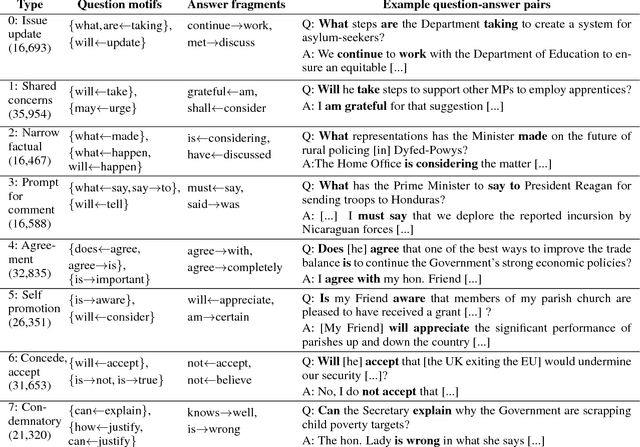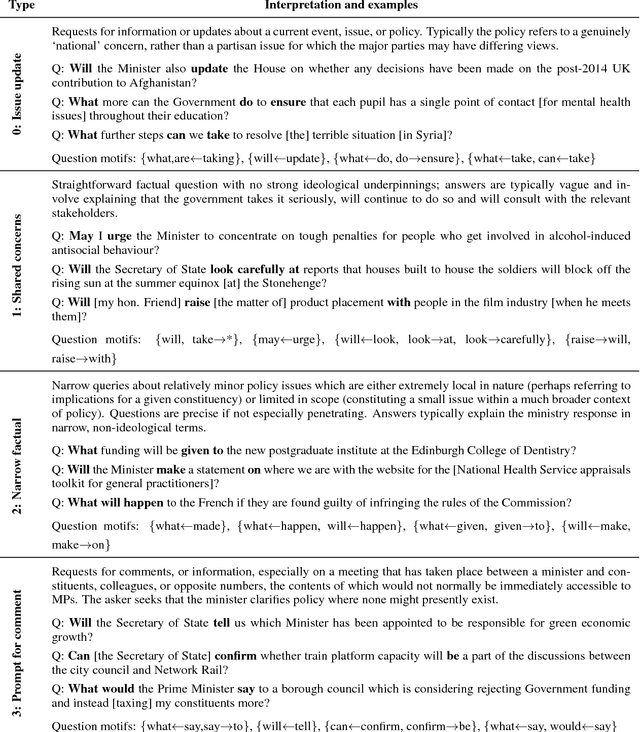Arthur Spirling
Asking Too Much? The Rhetorical Role of Questions in Political Discourse
Aug 07, 2017



Abstract:Questions play a prominent role in social interactions, performing rhetorical functions that go beyond that of simple informational exchange. The surface form of a question can signal the intention and background of the person asking it, as well as the nature of their relation with the interlocutor. While the informational nature of questions has been extensively examined in the context of question-answering applications, their rhetorical aspects have been largely understudied. In this work we introduce an unsupervised methodology for extracting surface motifs that recur in questions, and for grouping them according to their latent rhetorical role. By applying this framework to the setting of question sessions in the UK parliament, we show that the resulting typology encodes key aspects of the political discourse---such as the bifurcation in questioning behavior between government and opposition parties---and reveals new insights into the effects of a legislator's tenure and political career ambitions.
 Add to Chrome
Add to Chrome Add to Firefox
Add to Firefox Add to Edge
Add to Edge